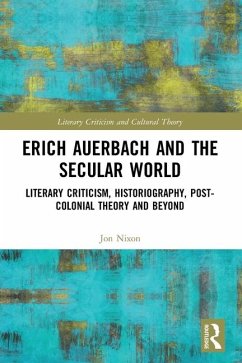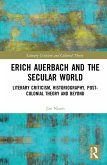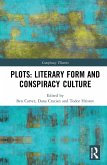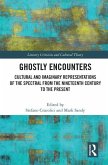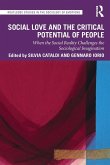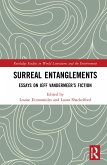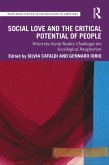Auerbach was one of the foremost literary critics of the 20th century whose work has relevance within the fields of literary criticism, historiography and postcolonial theory. The opening chapter of this book explains how he understood the task of interpretation and his role as an interpreter. The following chapter outlines the important phases in his life with reference to the writers and thinkers who influenced him in his thinking and practice. The central chapters of the book focus on specific themes in his work: the historical grounding of the 'figural' imagination; the relation between the secular and the sacred; the emergence of tragic realism; and the notion of 'inner history' as a defining feature of early 20th-cenntury modernism. The final two chapters focus on broader issues relating to the development of Auerbach's understanding of the development of an educated readership within Europe and of his concerns regarding the emergence of what he terms 'a world literature'.
In this timely and insightful narrative of the life and intellectual contributions of Auerbach, readers are invited - and provoked - to consider the significance of time and place and to question our own place in the increasingly complex and unstable world in which we live. It constitutes an essential reference point for those interested in historiography, literary criticism, post-colonial theory and the importance of the arts and humanities.
Professor Tanya Fitzgerald, The University of Western Australia
This is a fascinating study that brings Auerbach alive not only as a writer of historical importance but also as a thinker speaking directly to our current political and theoretical concerns. Written in a vivid, accessible style that moves effortlessly between biographical detail and conceptual elaboration, Erich Auerbach and the Secular World is a joy to read and makes a critical intervention to contemporary scholarship across disciplinary boundaries.
Dr Ari-Elmeri Hyvönen, University of Helsinki, Finland
This book is beautifully written, engaging and enlightening offering a homage appropriate in form and style to the importance of Auerbach. It should successfully engage existing and new scholars of Auerbach's important works.
Emeritus Professor Paul Gibbs, Middlesex University, UK
Jon Nixon provides an outstanding critical review of Auerbach. As ever Nixon writes with sensitivity, kindness and respect. There are so many resonances and insights in this work that will inspire those reading and writing around cultural theory, literary criticism and - my own particular interest - social justice. Nixon demonstrates that Auerbach's insights into the social world and its historical representations are essential to anyone who wants to understand the world we exist within, where we came from and who we might become.
Dr Jan McArthur, University of Lancaster, UK
In its vibrant, elegant and informative telling of the story of the life and times of Erich Auerbach, his intellectual contribution and its legacy, Jon Nixon's book provides more than an intellectual biography. Through an intricate weaving of historical and contemporary voices and reflections on God and man, art and the everyday, the sublime and the humble, it also reminds the reader on every page that the tragedy and promise at the heart of European culture is not a mere historical inheritance, but also a living responsibility to recognize and renew.
Professor Sharon Rider, Uppsala University, Sweden
In his most recent book Jon Nixon provides us with an accessible and scholarly exploration of some of the major themes in Erich Auerbach's path-breaking work within the field of literary and historical criticism. In doing so he affirms the vital importance of the arts and humanities in enabling us to understand the increasingly complex relation between the secular and spiritual within our rapidly changing 21st Century global societies.
Associate Professor Feng Su, Liverpool Hope University, UK
Professor Tanya Fitzgerald, The University of Western Australia
This is a fascinating study that brings Auerbach alive not only as a writer of historical importance but also as a thinker speaking directly to our current political and theoretical concerns. Written in a vivid, accessible style that moves effortlessly between biographical detail and conceptual elaboration, Erich Auerbach and the Secular World is a joy to read and makes a critical intervention to contemporary scholarship across disciplinary boundaries.
Dr Ari-Elmeri Hyvönen, University of Helsinki, Finland
This book is beautifully written, engaging and enlightening offering a homage appropriate in form and style to the importance of Auerbach. It should successfully engage existing and new scholars of Auerbach's important works.
Emeritus Professor Paul Gibbs, Middlesex University, UK
Jon Nixon provides an outstanding critical review of Auerbach. As ever Nixon writes with sensitivity, kindness and respect. There are so many resonances and insights in this work that will inspire those reading and writing around cultural theory, literary criticism and - my own particular interest - social justice. Nixon demonstrates that Auerbach's insights into the social world and its historical representations are essential to anyone who wants to understand the world we exist within, where we came from and who we might become.
Dr Jan McArthur, University of Lancaster, UK
In its vibrant, elegant and informative telling of the story of the life and times of Erich Auerbach, his intellectual contribution and its legacy, Jon Nixon's book provides more than an intellectual biography. Through an intricate weaving of historical and contemporary voices and reflections on God and man, art and the everyday, the sublime and the humble, it also reminds the reader on every page that the tragedy and promise at the heart of European culture is not a mere historical inheritance, but also a living responsibility to recognize and renew.
Professor Sharon Rider, Uppsala University, Sweden
In his most recent book Jon Nixon provides us with an accessible and scholarly exploration of some of the major themes in Erich Auerbach's path-breaking work within the field of literary and historical criticism. In doing so he affirms the vital importance of the arts and humanities in enabling us to understand the increasingly complex relation between the secular and spiritual within our rapidly changing 21st Century global societies.
Associate Professor Feng Su, Liverpool Hope University, UK

